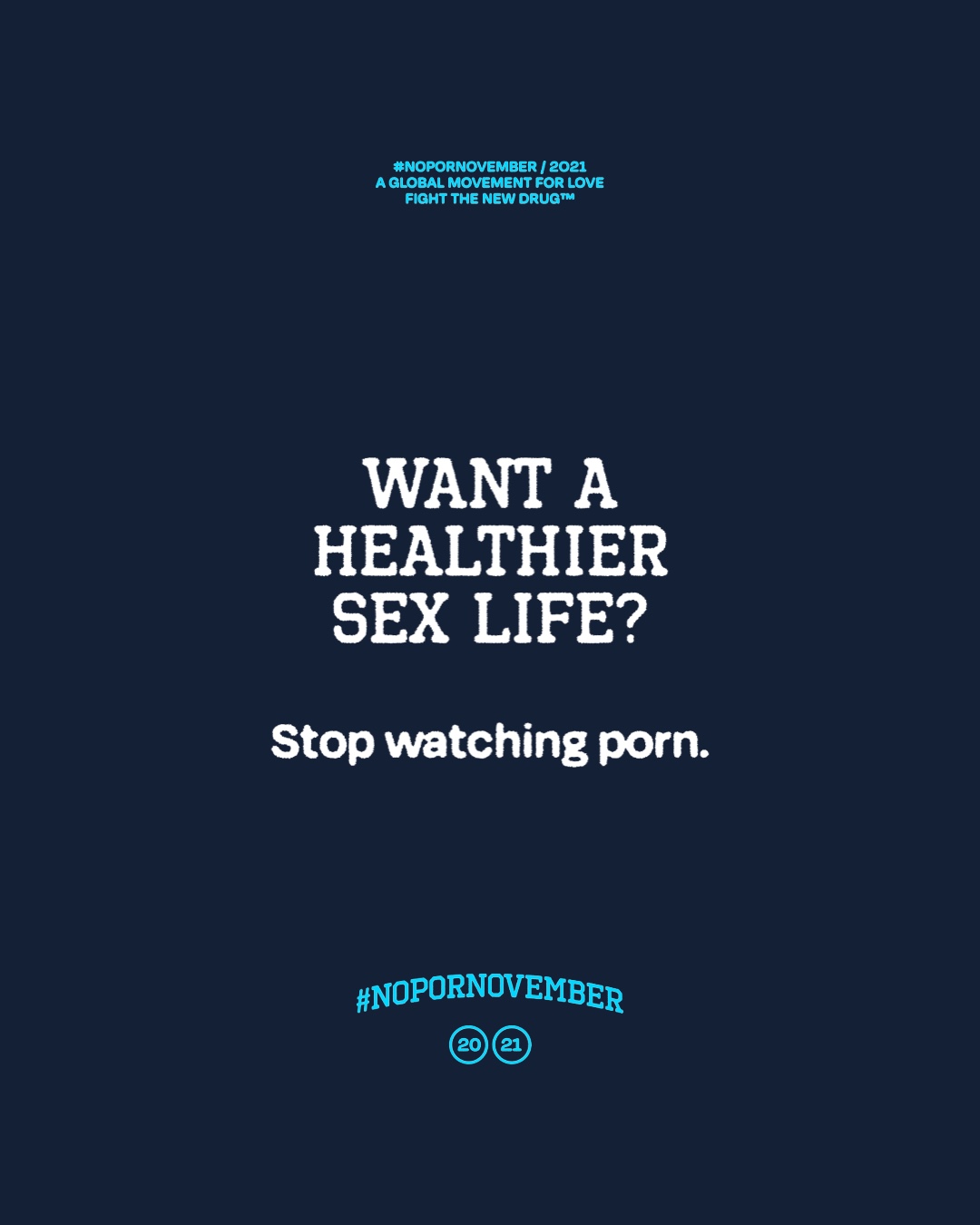Image from the National Center on Sexual Exploitation. 4-minute read.
“One of the things I’ve done in the last year, not just going to therapy, I’ve gotten off of social media. I got off all social media, I don’t watch pornography anymore, and my brain is like—I’m focused, man.”
This quote is from Chris Rock during a podcast interview in September 2020 (FTND note: the content in the interview discusses political and religious issues on which FTND has no stance as a non-religious and non-legislative nonprofit).
In the last couple of years, comedian Chris Rock has joined with other celebrities in speaking out on the life-changing harmful effects of pornography.
He isn’t just talking about quitting his porn habit in podcasts though, he’s taken his experiences to the main stage. In his Netflix special, Rock opened up in his first tell-all stand-up routine in almost a decade.
Rock divorced his wife of 16 years in 2016, and in the special called “Tamborine,” he cites porn as a big reason why.
Among a range of topics he opens up about, Rock talks about his self-described addiction to porn in the routine, as well as cheating on his wife several times while he was on tour, being 15 minutes late to everything because of porn, being unable to look people in the eye, and failing to notice normal social cues.
With counseling, he was able to overcome his porn struggle, but it came at a serious price—the end of a marriage that had lasted nearly two decades.
Here’s an excerpt from the special, edited for graphic language:
“When you watch too much porn, you know what happens?… You get desensitized. When you start watching porn, any porn will do. Then, later on, you’re all f—ed up and you need a perfect porn cocktail to get [aroused]. I was so f—ed up … I’m a lot better now.”
Porn’s harms are no joke
Now, we know that Chris Rock is a comedian—his business is to tell jokes, to make his audience laugh about uncomfortable things. But that shouldn’t take away the impact of what he says.
While we don’t know the exact details of his struggle or of his personal life, Rock was bold enough to share his experiences, and though he did not say that porn was the sole reason his marriage ended, he made it clear that it was a contributing factor. And his situation would be in good company, seeing as research consistently shows that porn consumers are twice as likely to later report experiencing a divorce or breakup—even after controlling for marital happiness, sexual satisfaction, and other relevant factors.Perry, S. L. (2018). Pornography use and marital separation: Evidence from two-wave panel data. Archives of Sexual Behavior, 47(6), 1869-1880. doi:10.1007/s10508-017-1080-8Copy Perry, S. L., & Davis, J. T. (2017). Are pornography users more likely to experience a romantic breakup? Evidence from longitudinal data. Sexuality & Culture, 21(4), 1157-1176. doi:10.1007/s12119-017-9444-8Copy Perry, S. L., & Schleifer, C. (2018). Till porn do us part? A longitudinal examination of pornography use and divorce. 55(3), 284-296. doi:10.1080/00224499.2017.1317709Copy
We know porn harms relationships, sometimes beyond repair, though not always. The evidence is overwhelming—just read this personal account about watching porn together, or this woman’s experience with her husband’s disinterest in sex, or this story about feelings of betrayal as a result of porn use in the relationship.
Many porn consumers are surprised to find that porn can be incredibly difficult to quit. While most porn consumers are not addicts in a clinically diagnosable sense,Willoughby, B. J., Young-Petersen, B., & Leonhardt, N. D. (2018). Exploring Trajectories of Pornography Use Through Adolescence and Emerging Adulthood. Journal of sex research, 55(3), 297–309. https://doi.org/10.1080/00224499.2017.1368977Copy many experts agree that pornography consumption is a behavior that can, in fact, qualify as an addiction in serious cases.Love, T., Laier, C., Brand, M., Hatch, L., & Hajela, R. (2015). Neuroscience of Internet Pornography Addiction: A Review and Update. Behavioral sciences (Basel, Switzerland), 5(3), 388–433. https://doi.org/10.3390/bs5030388Copy Stark R., Klucken T. (2017) Neuroscientific Approaches to (Online) Pornography Addiction. In: Montag C., Reuter M. (eds) Internet Addiction. Studies in Neuroscience, Psychology and Behavioral Economics. Springer, Cham. https://doi.org/10.1007/978-3-319-46276-9_7Copy De Sousa, A., & Lodha, P. (2017). Neurobiology of Pornography Addiction - A clinical review. Telangana Journal of Psychiatry, 3(2), 66-70. doi:10.18231/2455-8559.2017.0016Copy
This obsessive porn consumption can lead to an increase in mental health struggles,Koletić G. (2017). Longitudinal associations between the use of sexually explicit material and adolescents' attitudes and behaviors: A narrative review of studies. Journal of adolescence, 57, 119–133. https://doi.org/10.1016/j.adolescence.2017.04.006Copy or to the things Rock talked about in his show—apathy, neglect, and lack of commitment.
How relationships suffer
Some porn-fueled issues can be tangibly harmful to people and relationships.
As another real-life example, read about how actor Terry Crews saved his marriage after years of struggle with porn. Because porn can negatively affects a relationship, it’s not just a personal hobby.
According to study that tracked couples over time, porn consumption was the second strongest indicator that a relationship would suffer.Perry, S. (2017). Does Viewing Pornography Reduce Marital Quality Over Time? Evidence From Longitudinal Data. Archives Of Sexual Behavior, 46(2), 549-559. Doi: 10.1007/S10508-016-0770-YCopy There is no substitute for real connection, and porn isn’t worth risking that.
“My wife was literally like, ‘I don’t know you anymore, I’m out of here,’” said Crews of his porn-addicted past.
Like Rock, Crews was only able to overcome his struggle through therapy. Both of their stories are good reminders that seeking help is a much better alternative to being ashamed and waiting too long to save a relationship.
This growing movement
The understanding that porn isn’t harmless personal entertainment is growing in our culture.
States, organizations, and individuals are becoming more and more aware of the harmful social, mental, and physical effects of pornography, and it’s becoming more and more common to see new stories of public figures adding their two cents to the ever-expanding, “Hey, maybe porn is actually a real problem,” conversation.
It’s great to see Chris Rock speaking out on porn’s effect on his life and humanizing this global issue, and we hope that his experience would help others who might be struggling with the same thing.
If you struggle with porn, there is hope and help for healing.
Need help?
For those reading this who feel they are struggling with pornography, you are not alone. Check out Fortify, a science-based recovery platform dedicated to helping you find lasting freedom from pornography. Fortify now offers a free experience for both teens and adults. Connect with others, learn about your unwanted porn habit, and track your recovery journey. There is hope—sign up today.
Fight the New Drug may receive financial support from purchases made using affiliate links.
Your Support Matters Now More Than Ever
Most kids today are exposed to porn by the age of 12. By the time they’re teenagers, 75% of boys and 70% of girls have already viewed itRobb, M.B., & Mann, S. (2023). Teens and pornography. San Francisco, CA: Common Sense.Copy —often before they’ve had a single healthy conversation about it.
Even more concerning: over half of boys and nearly 40% of girls believe porn is a realistic depiction of sexMartellozzo, E., Monaghan, A., Adler, J. R., Davidson, J., Leyva, R., & Horvath, M. A. H. (2016). “I wasn’t sure it was normal to watch it”: A quantitative and qualitative examination of the impact of online pornography on the values, attitudes, beliefs and behaviours of children and young people. Middlesex University, NSPCC, & Office of the Children’s Commissioner.Copy . And among teens who have seen porn, more than 79% of teens use it to learn how to have sexRobb, M.B., & Mann, S. (2023). Teens and pornography. San Francisco, CA: Common Sense.Copy . That means millions of young people are getting sex ed from violent, degrading content, which becomes their baseline understanding of intimacy. Out of the most popular porn, 33%-88% of videos contain physical aggression and nonconsensual violence-related themesFritz, N., Malic, V., Paul, B., & Zhou, Y. (2020). A descriptive analysis of the types, targets, and relative frequency of aggression in mainstream pornography. Archives of Sexual Behavior, 49(8), 3041-3053. doi:10.1007/s10508-020-01773-0Copy Bridges et al., 2010, “Aggression and Sexual Behavior in Best-Selling Pornography Videos: A Content Analysis,” Violence Against Women.Copy .
From increasing rates of loneliness, depression, and self-doubt, to distorted views of sex, reduced relationship satisfaction, and riskier sexual behavior among teens, porn is impacting individuals, relationships, and society worldwideFight the New Drug. (2024, May). Get the Facts (Series of web articles). Fight the New Drug.Copy .
This is why Fight the New Drug exists—but we can’t do it without you.
Your donation directly fuels the creation of new educational resources, including our awareness-raising videos, podcasts, research-driven articles, engaging school presentations, and digital tools that reach youth where they are: online and in school. It equips individuals, parents, educators, and youth with trustworthy resources to start the conversation.
Will you join us? We’re grateful for whatever you can give—but a recurring donation makes the biggest difference. Every dollar directly supports our vital work, and every individual we reach decreases sexual exploitation. Let’s fight for real love:





